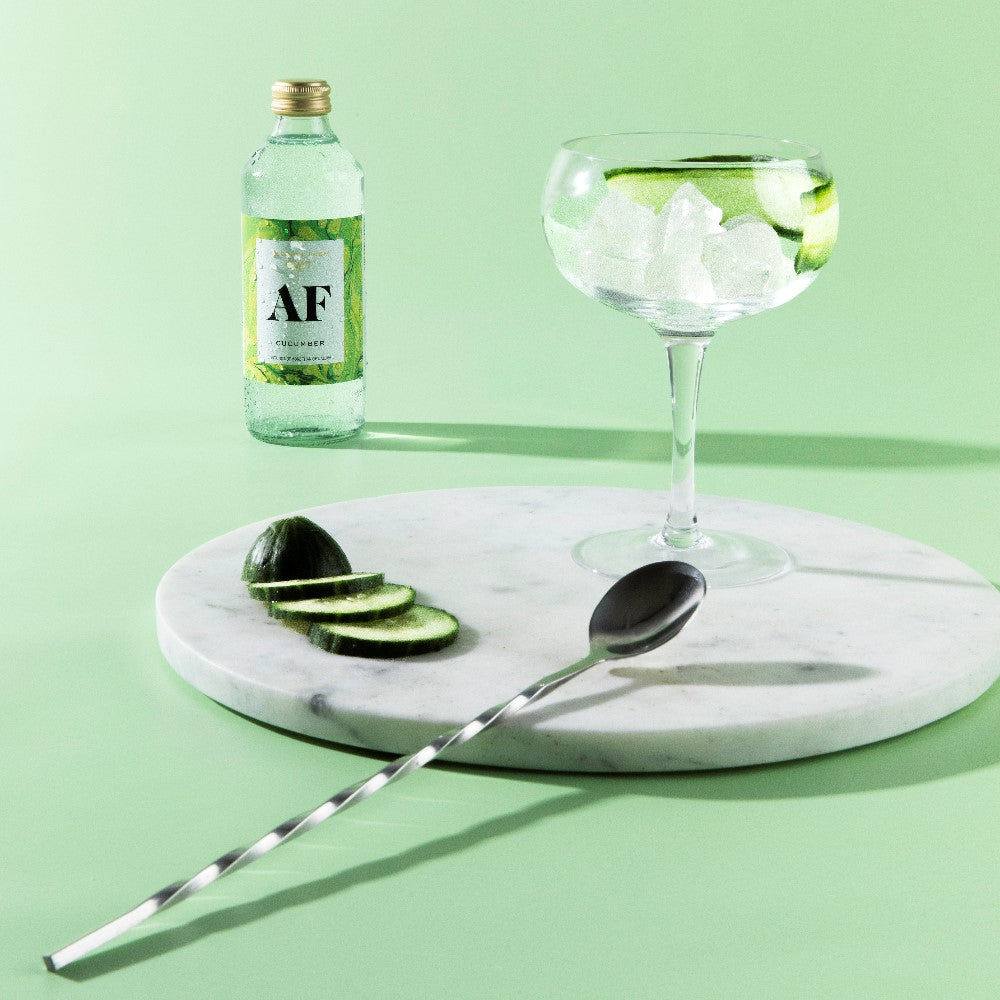EVERYTHING YOU THOUGHT IS (PROBABLY) WRONG
Sit down – this may come as a shock. Did you know gin and cucumber have only been together since the turn of the century? The turn of this century? The pairing is so perfect it feels like something that’s been swilling around for hundreds of years. But no.
Where cucumber met gin
We have a woman to thank for introducing cucumber into the world of gin. Lesley Gracie, a young chemist, started working at a distillery owned by William Grant and Sons. Her previous role was in pharmaceuticals, where she worked on making new medicines taste better. When master blender David Stewart was struck by inspiration, it was up to Gracie to bring the tastes of an English garden – roses and cucumber sandwiches – into what would eventually become Hendricks. It took two years and 21 attempts beforeGracie and Stewart were happy – and the brand wasn’t ready for launch until 2000.
Hendricks was the first of its kind, mixing the pungent, juniper-led spirit with a much lighter, subtler one, then adding cucumber and rose petal essences.
The brand was so successful that it created the first new gin garnish since someone plopped an olive into a martini. Hendricks – and a lot of other G&Ts, actually – are now served with a cuc instead of citrus.
Why cucumber is so great — it's really, really old
Native to India, cucumbers have been grown for over 3000 years. Early cucumbers were likely pretty bitter – the cucurbitacin you still get in some varieties was present in much higher concentration, probably to ward off pests.
Even people in the bible ate it. Numbers 11:5 shows that cucumbers were freely available in Egypt, even to the enslaved Israelites: We remember the fish, which we did eat in Egypt freely/the cucumbers, and the melons, and the leeks, and the onions, and the garlic.
It was so ubiquitous, the cucumber wasn’t just a drink garnish – it was the drink. There’s evidence that the Egyptians made weak liquor by cutting a hole in the ripe fruit, liquefying the insides with a stick, plugging the hole and burying it.Sounds… earthy.
It’s everywhere
The cucumber made its way along trade routes through the Middle East and into Europe. Later the Greeks added it to salads, Turkey realised it was great in yoghurt, and Bulgaria, Africa, modern-day Serbia and Italy caught on not too long after.
But the place where cucumbers reigned supreme was the Roman Empire. They were easy to grow and preserve, and widely used for both food and medicine. Cucumber concoctions were used to treat everything from bad eyesight to scorpion bites. Women who wanted children would tie them to their waists. Emperor Tiberius (14 – 16 AD) demanded to eat cucumber every day, so winter crops were coaxed out using moveable bed frames and mirror-stones.
It used to be called a cowcumber
This quintessentially English vege didn’t actually arrive in England until the 14th century, and mostly, people hated them. Somewhere along the line someone thought uncooked vegetables were really bad for health, and that prejudice stayed with cucumbers for a longtime – it was fit only for cows, which might be the source of its English name, the ‘cowcumber’. Samuel Pepys wrote in his diary on September 22, 1663: “This day Sir W.Batten tells me that Mr. Newhouse is dead of eating cowcumbers, of which the other day I heard of another, I think.”
It wasn’t until the mid-17th century that cucumbers became common in the English diet.
It goes great with gin
If the herbaceous juniper tang of gin with the bitter-sweet of tonic is, in itself, a delicious drop, the freshness of cucumber takes it up a notch. The cucumber adds a grassy note – think mown lawns in a glass – with the slight bitterness of the skin melding perfectly with the tonic’s quinine.
Even if you’re not into drinking any more, it’s hard to give that up. That’s why we created a perfect AF alternative. Cucumber freshness with the satisfying after burn of a good gin – without the alcohol.


Share:
100 Percent Potential
When Gin Meets Tonic